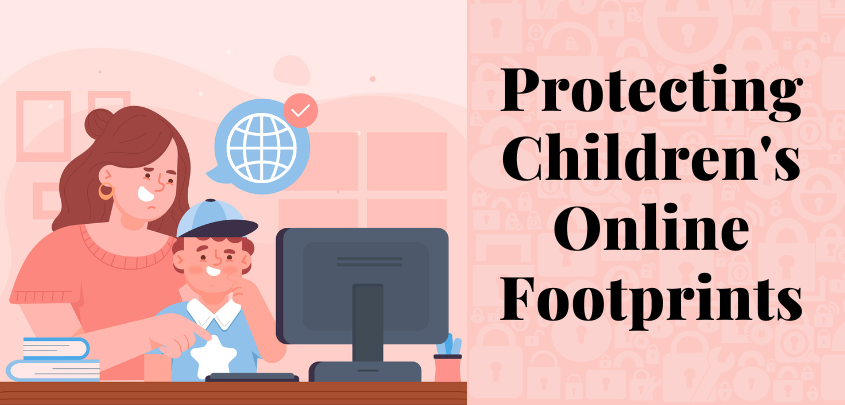
26, Jun, 2024
The Role of Parents in Managing Children’s Digital Footprints
Children are growing up surrounded by technology in the current digital era. They play online games, access social media, and use messaging apps to communicate private information with friends and family. Despite the fact that these activities are common in modern life, they leave a digital footprint—a digital trail—that may have long-term effects. Parents play an important role in protecting their children’s digital footprints.
Understanding Digital Footprints
A digital footprint is a record of all online activity, such as websites viewed, emails written, and information published via social media. The opportunities and interactions a child has in the future can be impacted by this footprint in positive as well as negative ways. Consequently, it’s critical that parents are aware of the dangers that come with their child’s digital footprint:
- Physical Safety: A child’s physical safety may be at danger if they disclose personal information online, such as their location, school, or contact information.
- Identity Theft: Scammers or hackers may utilize children’s online identities to commit identity theft.
- Online Reputation: A child’s online reputation is shaped by all of their online interactions, which might have an effect on future chances like employment or college applications.
Educating Children About Online Safety
Effective communication is critical. It’s important for parents to have honest discussions with children about the significance of internet safety. Discuss the disadvantages of oversharing personal information, as well as the potential risks of using social media. Children should be taught the importance of keeping a positive internet presence as well as the possible long-term repercussions of their online behavior.
Setting Age-Appropriate Boundaries
Establishing age-appropriate internet rules is crucial to ensuring children’s safety. Parental control apps can help parents monitor their children’s online activity. These applications can assist in controlling social media activity to avoid oversharing, setting screen time limits, and filtering objectionable content. There are resources available for configuring parental controls on a variety of devices, including Android, iPhone, MacBook, Windows, and MacBook.
Balancing Privacy and Monitoring
Respecting children’s privacy is just as vital as keeping an eye on their online activity. Striking a balance between supervision and granting their kids some independence is something parents should try to accomplish. Assure kids that monitoring is done for their protection and encourage them to share their experiences and worries about the internet.
Parental Oversharing and Its Implications
One of the biggest contributors to a child’s digital footprint is parental oversharing, which is the behavior of parents exposing personal information about their child online. While it’s common to share successes and milestones, parents should consider the possible long-term consequences. Online sharing of information can be viewed, saved, and examined at a later time, which may have an effect on the child’s privacy and online reputation. Parents should prioritize their child’s right to privacy, exercise caution when posting information online, and think about the possible repercussions in the future in order to reduce these hazards.
Tools for Managing Children’s Online Safety
Parental control applications provide comprehensive methods for supervising and controlling kids’ internet behavior. These applications offer functions like:
- Password-Protected Settings: Use a password to secure the parental control settings.
- Age-Appropriate Web Filtering: Select the websites that kids can visit according to their age.
- Set Time restrictions and Rules: Define time restrictions and rules for using the internet.
- Activities Feed: Monitor all device activities, including access to websites and applications.
- Family Locator: Use an interactive map to find children.
- App Management: Block in-app purchases and receive reports on installed apps.
Conclusion
Parents need to actively manage their children’s digital footprints as they explore the digital world. Parents can assist their children in developing into responsible digital citizens by teaching them about internet safety, establishing reasonable boundaries, and utilizing parental control software. Making sure kids have a safe and enjoyable internet experience requires open communication, respect for their privacy, and proactive monitoring.
